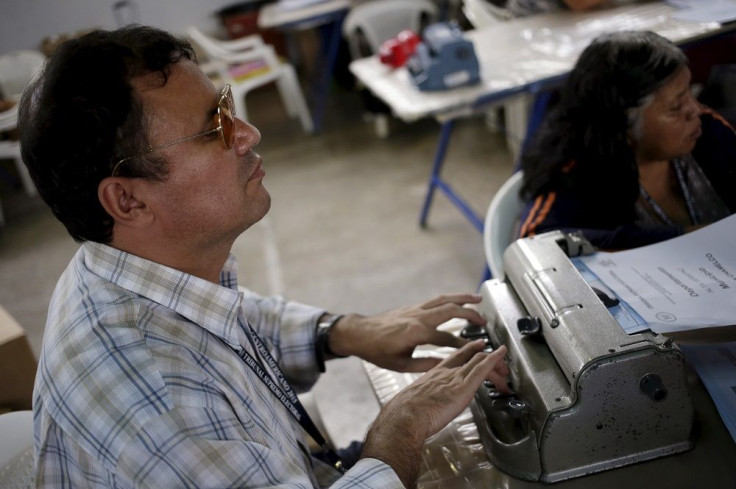Scientists Partially Restore Vision Of Blind Man With Gene Therapy

Scientists were able to partially restore a blind man's vision using gene therapy, according to the results of a study published Monday. Researchers believe this could revolutionize medical science.
A 58-year-old man with the eye disease retinitis pigmentosa had been blind for 40 years until scientists injected genetically engineered viruses into his eye for the study, whose findings were published in the journal Nature Medicine.
The scientists altered the cells of the eye to make them more sensitive to light — a technique known as optogenetics. After several months, the man, whose identity was not revealed, has been able to see small objects such as a staple box and a notebook while wearing a specialized pair of goggles.
"Optogenetics is the science of taking non-light sensitive cells and introducing genes to them that make them light-sensitive," explained Philip Lewis, a biomedical engineer at Monash University, CNET reported.
Retinitis pigmentosa is a rare genetic disorder that breaks down fragile photoreceptors, or light-sensing cells, in the retina, and affects up to 1 in 4,000 people worldwide, according to the National Institutes of Health. It results in tunnel vision and even complete blindness in the majority of patients, which was the case for the 58-year-old man in the study.
The man had been completely blind for the last two decades after his photoreceptors degenerated. "His retina was unable to detect any significant signal," said study first author José-Alain Sahel, an ophthalmologist at the University of Pittsburgh, of the patient.
To restore the patient's vision, the researchers injected a "viral vector" they created into his eye and let him wear a pair of goggles that transformed light into "monochromatic images" and projected them onto the re-engineered cells in the retina in real-time, as per CNET.
The viral vector delivered a gene that is sensitive to amber, or red, light into the retinal ganglion cells, and the gene then makes a light-sensing protein usually made by algae called channelrhodopsin. Once formed, the proteins could then respond to light and send image signals to the brain.
The goggles served as the patient's rods and cones, according to Botond Roska, a biomedical researcher at the University of Basel and author of the new study. Without the goggles, the patient is completely blind.
After the injection, the patient reported that he did not notice any significant changes to his vision. After several months, however, he was surprised when he began seeing the white stripes of a crosswalk while wearing the specialized goggles, CNET reported.
The study's researchers released a couple of videos of the patient trying to locate items in front of him.
Roska went on to explain that the device will not be able to let a patient see a face or read a book because the resolution is not high enough. It will, however, greatly improve parts of their life significantly.
"These are very exciting results," Raymond Wong told the outlet of the study. Wong is a stem cell biologist at the University of Melbourne developing treatments for eye diseases and is not affiliated with the study.
"Although this treatment didn't restore the patient's vision to a normal level, restoration of some basic levels of vision could help blind patients navigate day-to-day tasks and greatly improve their quality of life," Wong said.
As the pandemic begins to wane, the researchers hope to begin testing other patients enrolled in the trial to further assess the effectiveness of the goggles. The study is expected to reach its completion in 2025.

These glasses can put an end to color blindness! Photo: mcgill.ca






